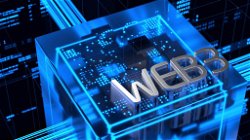Smart Cities: Innovations and Challenges in Creating Sustainable Urban Environments
Adina Anderson
. 2 min read
As the world's population continues to urbanize, cities face the dual challenge of accommodating rapid growth while ensuring sustainability and efficiency. Smart cities have emerged as a cutting-edge solution to address these pressing issues. By integrating advanced technologies and data-driven approaches, smart cities aim to enhance the quality of life for residents, promote environmental sustainability, and optimize urban operations. In this article, we will explore the innovations and challenges surrounding the development of smart cities, shedding light on their potential to create more sustainable and livable urban environments. Join us in a cam chat as we delve deeper into the fascinating world of smart cities, discussing the transformative impact of technology and citizen engagement in shaping the cities of tomorrow.

Explore the Innovations and Challenges Surrounding the Development of Smart Cities
The Foundations of Smart Cities
Smart cities leverage a vast network of interconnected devices and sensors to gather real-time data, enabling authorities to make informed decisions. These technologies are embedded in various aspects of urban life, such as transportation, energy, waste management, public safety, and more. The data collected serves as the foundation for optimizing city services and infrastructure.
Smart Transportation
One of the key areas of innovation in smart cities is transportation. Smart transportation systems encompass a range of technologies, including traffic management systems, intelligent public transportation, and autonomous vehicles. These solutions aim to reduce traffic congestion, minimize carbon emissions, and improve the overall efficiency of urban mobility.
Sustainable Energy Management
Smart cities prioritize sustainable energy solutions to reduce their environmental impact. Integrating renewable energy sources like solar panels and wind turbines, alongside smart grid technologies, enables cities to manage energy distribution more efficiently. Additionally, smart energy management systems empower residents to monitor and control their energy consumption, promoting a culture of sustainability.
Enhanced Public Services
Through data analytics and artificial intelligence, smart cities can optimize public services like waste management, water distribution, and emergency response systems. By dynamically analyzing patterns and trends, these services become more efficient and responsive to the needs of residents, contributing to a cleaner and safer urban environment.
Challenges and Considerations
Despite the immense potential, the development of smart cities comes with challenges that need to be addressed. Privacy and data security concerns must be carefully managed to safeguard citizens' personal information. Additionally, there can be disparities in access to technology, leading to potential inequalities among residents. Collaborative efforts between government, private sectors, and communities are essential to overcoming these challenges and ensuring an inclusive and equitable smart city transformation.
Citizen Engagement and Collaboration
To create successful and sustainable smart cities, citizen engagement and collaboration are paramount. Involving residents in decision-making processes, garnering feedback, and addressing their needs are critical elements for ensuring that smart city initiatives align with the community's values and priorities.
Conclusion
Smart cities represent an exciting vision for the future of urban living. By harnessing the potential of advanced technologies and data-driven solutions, smart cities aim to transform urban environments into sustainable, efficient, and livable spaces for all residents. However, achieving this vision requires overcoming various challenges and fostering collaboration between stakeholders. As the world continues to embrace the possibilities of smart cities, it is essential to prioritize inclusivity, transparency, and sustainability to build a truly intelligent and harmonious urban future.
More Stories from
Failure as a Service: Unleashing the Power of Failure for Software System Enhancement
It highlights that not all defects result in failures and discusses additional factors like environmental conditions and human errors that can contribute to failures.
Creative DIY Projects for Repurposing Computer Network Drives into Home Improvement Solutions
This article discusses various creative and practical ways to repurpose an old computer.
International Telecommunication Union (ITU): Bridging the Global Digital Divide
The International Telecommunication Union (ITU) is a specialized agency of the United Nations, dedicated to promoting global connectivity.
Illuminating the Future: A Comprehensive Guide to Light Emitting Diodes (LEDs)
Discover the history, working principles, and diverse applications of LEDs, from lighting and displays to automotive advancements.
The World Wide Web: Connecting Humanity Across Time and Space
From its inception by Sir Tim Berners-Lee to its exponential growth, learn how the Web revolutionized communication, commerce, and society at large.
.png?height=40)
.jpg?width=250&aspect_ratio=16:9)








.png?width=40&aspect_ratio=1:1)
